British Cattle Breeders Conference Preview 2017
A message from the BCBC Chairman, Iain Kerr
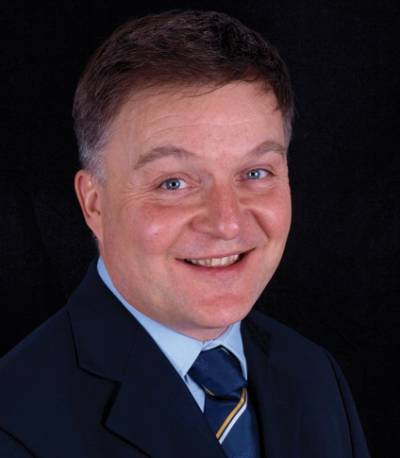
Welcome to the 2017 British Cattle Breeders’ Conference (BCBC). Since its inception some sixty eight years ago, the BCBC has become a unique event, renowned for its mix of practical, high quality speakers. With the future of cattle breeding at heart, it links a wide spectrum of farmers, scientists, students and industry influencers. BCBC is a fantastic forum to kick off the New Year, challenging ideas, introducing new science and technologies and providing the opportunity to meet people, stimulate thought, debate and discuss.
The 2017 BCBC Conference will of course be the first since the Brexit vote and held in a year that will likely be a formative one for UK agricultural and political history.
We have seen over many years how cattle breeding has greatly benefitted from the dynamic integration of science, new technologies, and innovation. In this ‘new era’ I have no doubt that science and innovation will never have been more important for farmers now and for future generations. New thinking, and strengthening the ability to innovate, will provide the advances and improvements that will increase efficiencies and produce populations of animals that can respond to the demands of a changing market place and deliver profitability. As we look to a market driven economy that will expect high levels of production efficiency, and will demand producer response to a wider agenda of competing challenges such as climate change, health and animal welfare, there is a need for us to examine whether the genetics we propagate at herd and breed level will deliver what will be required.
By the nature of cattle breeding new science adopted today may take years to deliver its full reward. What science, new technology and innovation can add value to beef and dairy production in the short and medium term? Also, in this time of challenge for tomorrow’s generation how do we engage young people, encourage their passion for agriculture and secure their future?
The 2017 BCBC programme has been carefully crafted around these points and lies behind the theme of ‘Practical Innovation – Today’s Challenges for Tomorrow’s Generation’.
A huge thank you is extended to everyone who has contributed in so many ways towards the 2017 British Cattle Breeders Conference. First and foremost we have a rich mix of domestic and international speakers and I’d like to thank them for their ready willingness to attend. We are indebted to all of our sponsors for their invaluable support and in particular the mainline sponsors Afimilk; AHDB; ASDA; Mole Valley Farmers; and Waitrose. I’d like to personally thank the members of the BCBC Committee for their ideas, input and hard work towards the construction of the 2017 programme. A warm and sincere thank you also to Heidi Bradbury the BCBC Conference Organiser who so effortlessly gets the job done and makes it all happen.
I have been attending the BCBC as a delegate for some twenty years so to now be the Chairman of the 2017 Conference is truly a great honour. It is very much my hope that as delegates you enjoy the programme and the people, and leave the 2017 BCBC informed, full of ideas, and with the energy and vision to embrace practical innovation and add value to every level of our great beef and dairy industries. I look forward to seeing you there.
Preview of just some of January's keynote speakers
Mark Berrisford-Smith, Head of Economics, HSBC’s Commercial Banking Business in the UK - ‘Understanding the effect of the UK’s vote to leave the EU’
Having studied Economics at Sussex and London Universities, Mark Berrisford-Smith is Head of Economics for HSBC’s commercial banking business in the UK. He is responsible for advising the Bank in the UK and its business customers on developments in the British and global economies with a particular interest in monitoring the performance of European countries and China. HSBC have been recognised as marketleading in their response to the result of the EU referendum. This session will cover what Brexit means for business and the big choices that have to be made.
George Lyon, Independent Director AHDB, Isle of Bute, Scotland - ‘The clock is ticking towards post-Brexit Britain’
George Lyon is a former MEP and NFU Scotland Chairman. Presently he is an Independent Director of AHDB and Chair of the Meat and Livestock Commercial Services Ltd.
“UK beef producers face a substantial strategic challenge from Brexit. New trade deals will bring more competition and there are serious question marks over future support. How does the industry respond to that challenge? Are there opportunities for UK beef producers or only threats? The clock has already started ticking towards March 2019 and the industry needs to start planning for a post Brexit future now.”
Professor Nigel Scollan, Director of Institute for Food Security & professor of Animal Science, Queens University, Belfast - ‘Meeting the challenges post-Brexit Britain’
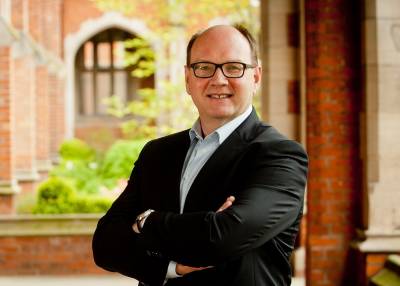
Professor Scollan will consider the opportunities for farming and tomorrow’s generation during this time of political change. “There is an urgent need for investment in research to support the further development of sustainable and differentiated beef systems. Effective translation of science and technology into practice will be vital. Knowledge exchange and training to elevate skills in the industry and support further development of a technology driven beef sector in the UK will be key to this.”
Jerry Wulf, Wulf Cattle, Minnesota, USA - ‘Wulf Cattle markets 50,000 commercial cattle and 650 breeding bulls annually in Minnesota, USA’
Feed efficiency, dressing percent and higher yields are crucial when producing a premium product.Jerry Wulf utilises new technology and techniques to produce the best in his beef cattle supply chain. This is a passion Wulf Cattle has embraced over 50 years in the business of beef production where strategy and genetic improvement is only and always made with the whole beef chain in mind. “The Wulf program is a fully integrated beef producer feeding many customers’ calves, tracking them through the packing process and sharing the carcass data with the producer.”
Dr Alison Van Eenennaam, University of California, USA - ‘Gene Editing – the pros and cons and relevance to the Beef Sector’
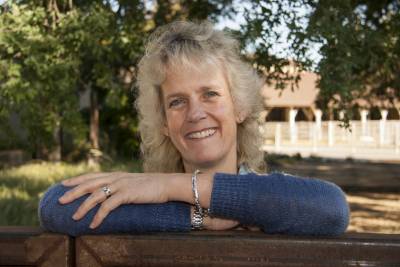
Having received a Bachelor of Agricultural Science from the University of Melbourne in Australia, an MS in Animal Science, and a PhD in Genetics from UC Davis, Dr Van Eenennaam has given over 400 invited presentations to audiences globally. Frequently providing a credentialed voice on controversial topics including cloning and genetically engineered plants and animals Dr Van Eenennaam will explore gene editing and its relevance to the beef industry in this presentation. Dr Van Eenennaam was the recipient of the 2014 Council for Agricultural Science and Technology (CAST) Borlaug Communication Award, and the 2016 Beef Improvement Association (BIF) Continuing Service Award.
Professor Theo Meuwissen, Norwegian University of Life Sciences - ‘Awarded the prestigious John Carty Award in 2016 for development of genomic selection’
Professor of bioinformatics at the Norwegian University of Life Sciences, Theo Meuwissen along with Prof. Mike Goddard from the University of Melbourne were internationally recognised for their work on the development of genomic selection in livestock, plant and human science in 2016. In this session, Professor Meuwissen will be exploring whether we have already exhausted the value of genomic selection in dairy cattle, or whether there are still some hidden treasures to exploit. What strategies should be adopted to keep moving with genomic selection?
David Speller, Applied Poultry, Chesterfield - ‘Breaking new ground monitoring and controlling technology in poultry facilities around the world’
Farmers Weekly Poultry Farmer of the Year 2009 David Speller had no previous experience in poultry but purchased an existing business in 2004, embraced new technology and re developed the site. Now an additional ten sites around the UK are managed, and assistance is provided to a global network of farmers. Applied Poultry is a partner in the EU Precision Livestock Farming project.
Robert Veitch, Ve-Tech Holsteins, Tarbolton, Ayrshire - ‘Intelligent Automation Driving Production, Health & Welfare’
A profile of the UK’s first fully automated farm exhibiting the latest technology, Robert Veitch was born into a dairy farming family and will give a brief explanation of his background to present day and beyond. He will look at where he was five years ago, where he is now and where he wants to be in the next 5 years. Progressive by nature, Robert will detail how he has harnessed the latest in robotic technology and demonstrate the benefits it has brought him in both production and animal welfare.
Dr Stephen Conroy, Manager of Progeny Test Centre, Irish Cattle Breeding Federation, Co Kildare, Ireland - ‘Incorporation of Measures of Meat Quality in to Beef Breeding Goals: What is the Future and Why is it important?
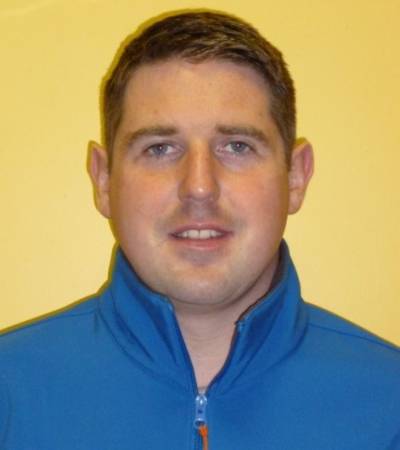
Meat quality is becoming more important as consumers worldwide are increasingly demanding consistently higher quality meat. The ICBF has collected sensory panel and shear force phenotypes relating to tenderness, juiciness and flavour producing heritabilities for these traits as well as examining between-breed differences. This presentation will introduce the approach taken in this study and detail the industry outcomes to date.
Vicky Hicks, Product Manager, National Milk Records (NMR), Chippenham - ‘Mid-infrared analysis of milk; opportunities for new breeding traits’
New breeding traits covering fatty acids, energy balance and efficiency are obtainable via an innovative application of existing mid-infrared technology. EBV’s and heritability’s for such traits will be available to show what genetic progress can be achieved and what impact this could have on health and profitability.
Meilir Jones, Gop Farm, Flintshire - ‘Farmers Weekly Beef Farmer of the Year 2015 embraces EID technology’
Meilir Jones, farms 250 acres in Flintshire finishing 1350 store cattle annually. The enterprise uses different technologies to monitor and improve performance and marketing decisions based on the information to create the keenest possible margins. Until recently, the farm has been a Farming Connect demonstration farm, sharing the results of new knowledge and trials with other producers, as well as feeding performance information up and down the supply chain.
Professor Mark Rutter, Harper Adams University, Shropshire - ‘Marrying Science to Production: Smart technologies to improve production efficiency and animal welfare’
Professor of Applied Animal Behaviour, at Harper Adams University, Mark Rutter will explain the wide range of sensing technologies that have been developed for the on-farm monitoring of dairy cows. These aim to improve the efficiency of cow management. Many of the early systems focused on oestrus detection but systems are now being used in the early detection of disease. Along with other technologies in development, these have the potential to improve animal welfare as well as production efficiency.
Dave Ross, Chief Executive, The Agri EPI Centre, Easter Bush, Midlothian - ‘CEO of Agri-EPI Centre Ltd exploring new technologies available to the beef industry’
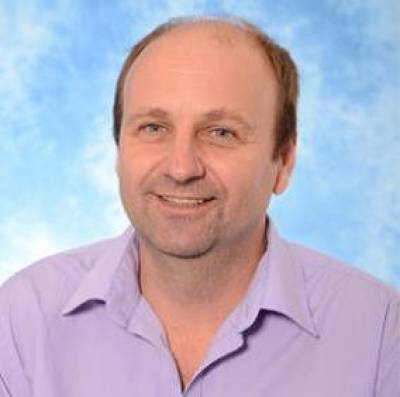
Agri-EPI Centre Ltd, is one of the new UK Centres of Agricultural Innovation, with a specific focus on Precision technologies and engineered solutions. In recent years Dave Ross has focused on livestock-related technologies and been involved in the research and development of a number of novel and patented developments across the agricultural production sectors. This session will explore what new technologies are out there, why precision agriculture is important and the ‘smart farming’ solutions that technology currently offers to the UK beef industry.
Tim Gue, Huddlestone Farm, Steyning, West Sussex - ‘Genomic testing heifers benefits family dairy farm’
Fascinated by the concept of genomic testing, since 2011 Tim Gue has tested all youngstock in his dairy herd allowing rapid genetic progress to be made, and improving the accuracy of matings. The Huddlestone herd consists of 420 cows and is the 15th highest PLI herd in the country with more than 100 cows classified ‘Excellent’, demonstrating the considerable advancements that have been made. Tim is currently an AHDB Dairy Board member and also sits on the Genetic Advisory Forum.